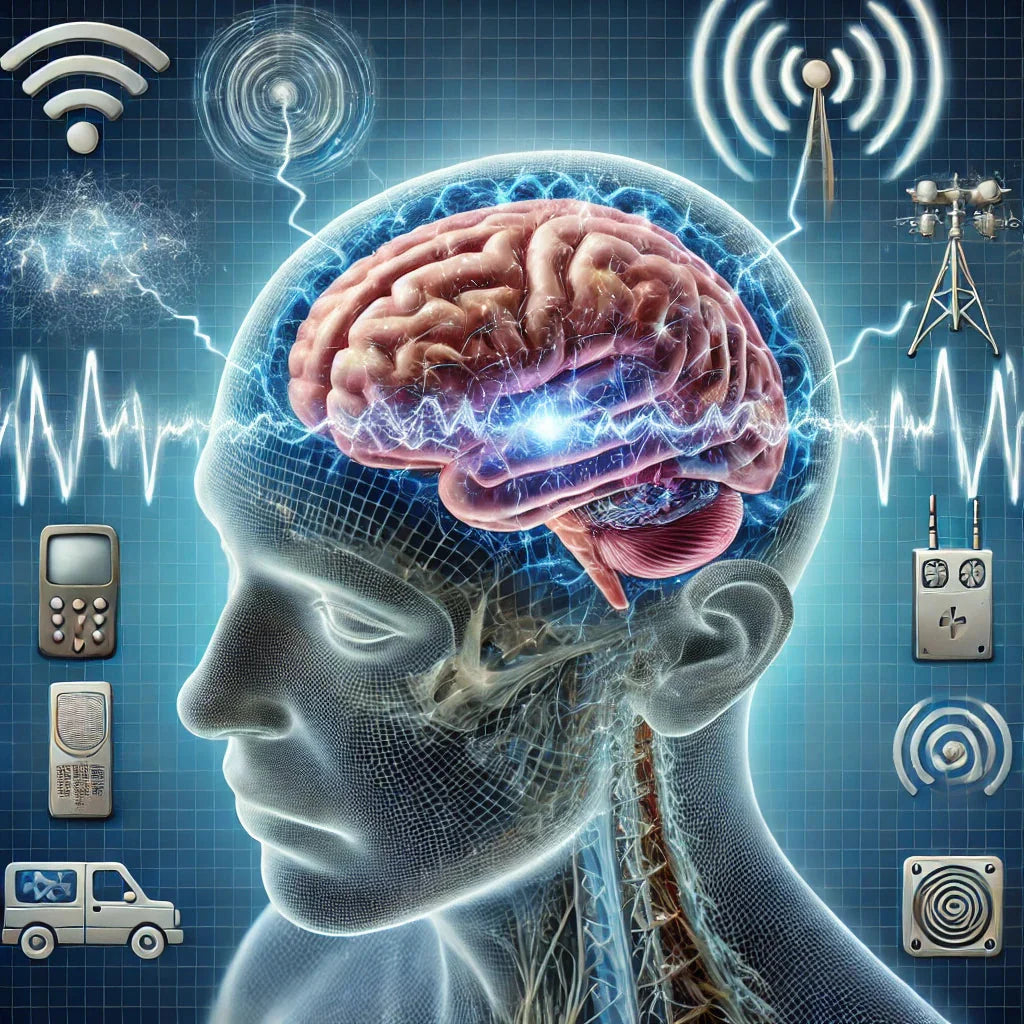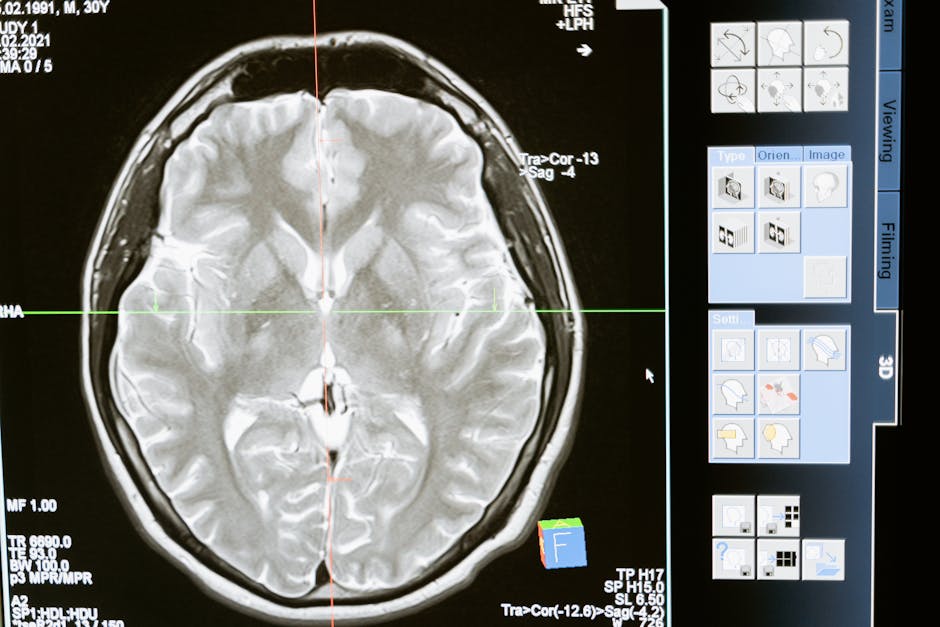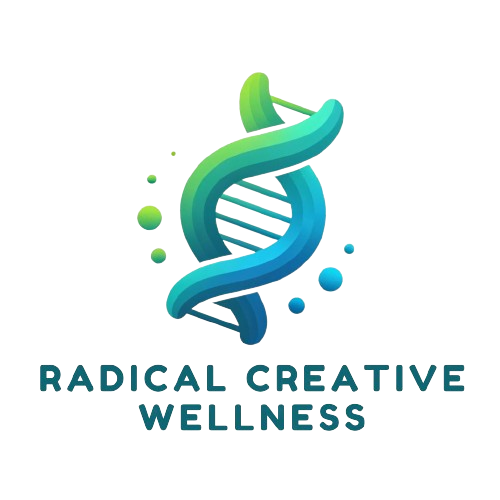Biohacking Brain Health: Proven Strategies for Cognitive Enhancement

How Biohacking Can Improve Your Brain Health
Biohacking brain health has become a promising approach for enhancing cognitive function and overall well-being. If you're eager to improve your brain health using innovative methods, here's what you need to know:
- Nutrition: Focus on nutrient-dense foods rich in vitamins, minerals, and antioxidants.
- Exercise: Incorporate regular exercise, particularly high-intensity interval training (HIIT).
- Meditation: Engage in mindfulness practices to reduce stress and improve mental clarity.
- Sleep: Prioritize quality sleep with a consistent schedule and sleep hygiene practices.
Biohacking brain health combines creativity and science to find practical strategies for better mental performance. With cognitive decline affecting many, these actionable insights can make a substantial difference.
At Radical Creative Wellness we bring years of experience in biohacking and wellness. Our journey combines digital storytelling with health innovations to help you optimize your well-being. Stay tuned as we dive deeper into effective biohacking strategies.

What Is Biohacking?
Biohacking is the practice of using science and technology to optimize your body's performance and longevity. It involves applying methods from fields like biology, genetics, neuroscience, and nutrition to improve physical and mental health. Think of it as DIY biology, where you experiment with different techniques to improve your well-being.
A Brief History of Biohacking
Biohacking can be described as a way to "change the environment around you and inside of you so you have full control of your own biology." Many individuals who once struggled with issues like obesity, brain fog, and chronic fatigue began biohacking their own bodies by applying the principles of computer hacking to their biology. They experimented with dozens of supplements and even advanced medical techniques to optimize their health.

Biohacking has been popularized by various individuals, bringing it into the mainstream. For most people, biohacking is about not leaving your health to luck or genetics. Instead, it's about actively working to optimize your body's systems.
Types of Biohacking
Biohacking can take many forms, and almost any tactic aimed at enhancing your biology can be considered biohacking. Here are some common categories:
- Lifestyle Biohacking: Focuses on making positive health and behavior choices. This includes dietary shifts, breathwork, meditation, and exercise.
- Molecular Biohacking: Involves the use of natural and synthetic molecules, like supplements, to shift your biology.
- Biologics Biohacking: Uses advanced medical techniques like stem cells and IV therapies to improve health.
- Technology Biohacking: Employs wearables, diagnostics, and devices like hyperbaric chambers to optimize health.
The Science Behind Biohacking
Biohacking draws heavily from neuroscience and nutrition. For example, intermittent fasting and ketogenic diets have been shown to improve brain function by increasing the production of ketones, which are a more efficient fuel for the brain. Mindfulness and meditation practices have also been proven to reduce stress and improve cognitive performance.
Neuroscientist Dr. Kristen Willeumier has worked with individuals to improve their brain health through diet, supplements, exercise, and cognitive training. Her research shows that these methods can significantly improve cognitive function, even in individuals with brain trauma.

Biohacking brain health isn't just for the wealthy or the tech-savvy. Simple changes in diet, exercise, and mindfulness can make a big difference. Whether you're looking to boost your cognitive performance or improve your overall well-being, biohacking offers practical strategies backed by science.
Next, we'll explore specific strategies for cognitive improvement, including intermittent fasting, the ketogenic diet, and more.
Types of Biohacking for Brain Health
Lifestyle Biohacking
Lifestyle biohacking focuses on making positive health and behavior choices to optimize brain health. Here are some key methods:
- Dietary Shifts: Adopting a brain-friendly diet can make a big difference. For example, the MIND diet combines elements of the Mediterranean and DASH diets to promote cognitive health. It emphasizes foods like leafy greens, berries, nuts, and fish.
- Breathwork: Controlled breathing techniques can reduce stress and improve focus. Practices like deep breathing or the Wim Hof Method have shown benefits for mental clarity.
- Meditation: Regular meditation can improve cognitive function and reduce stress. A study highlighted by neuroscientist Dr. Kristen Willeumier shows that meditation can actually change brain structure, improving areas related to attention and memory.
- Exercise: Physical activity, especially aerobic exercise, increases the production of brain-derived neurotrophic factor (BDNF), which supports neuroplasticity and cognitive function.
Molecular Biohacking
Molecular biohacking involves the use of natural and synthetic molecules to improve brain health. This often includes:
- Supplements: Specific supplements can boost cognitive function. Nootropics like Rhodiola Rosea and adaptogens like Ashwagandha can improve focus and reduce stress.
- Vitamins and Minerals: Essential nutrients like vitamins B, C, D, and E are crucial for brain health. Omega-3 fatty acids, found in fish oil, are also beneficial.
- Peptides: Compounds like BPC-157 and TB-500 are known for their healing properties and can support brain health by reducing inflammation and promoting cellular repair.
Biologics Biohacking
Technology Biohacking
Technology biohacking employs devices and diagnostics to monitor and improve brain health. Popular tools include:
- Wearables: Devices like the Oura Ring and WHOOP track sleep, activity, and other health metrics to help optimize your daily routine.
- Diagnostics: Advanced imaging and blood tests can provide detailed information about your brain health, helping to tailor biohacking strategies.
- Hyperbaric Chambers: These chambers increase oxygen levels in the body, which can improve brain function and speed up recovery from injuries.
- Electromagnetic Stimulators: Devices like transcranial magnetic stimulation (TMS) can improve brain activity and are being researched for treating depression and other cognitive disorders.
By integrating these biohacking brain health strategies, you can take control of your cognitive performance and overall well-being. Next, we'll dive into specific strategies like intermittent fasting and the ketogenic diet that have proven benefits for brain health.
Proven Strategies for Cognitive Improvement
Intermittent Fasting
Intermittent fasting involves eating within a specific time window and fasting for the rest of the day. This method has shown promising results for brain health. When you fast, your body switches from using glucose to ketones for energy, a state called ketosis.
Ketones are beneficial for the brain. They trigger the production of brain-derived neurotrophic factor (BDNF), which supports the growth of new brain cells and strengthens neural connections. Studies have shown that intermittent fasting can improve cognitive performance, resilience to stress, and reduce inflammation.
Ketogenic Diet
The ketogenic diet focuses on high-fat, low-carb foods to keep your body in ketosis. Unlike intermittent fasting, you maintain this state through dietary choices.
Research shows that the ketogenic diet can improve brain function and resistance to stress. It increases ketone levels, which have been linked to better cognitive performance and potential benefits for Alzheimer's patients. However, consult a doctor before starting, as the diet can have side effects like high cholesterol and nutrient deficiencies.
Longevity Diet
The longevity diet emphasizes plant-based foods rich in omega-3s, vitamins, whole grains, and vegetables. This diet aims to extend lifespan while improving brain health.
Foods high in omega-3s, like flaxseeds and chia seeds, support brain function. Vitamins found in fruits and vegetables are crucial for cognitive health. Whole grains provide sustained energy, helping maintain focus and cognitive performance.
MIND Diet
The MIND diet combines elements of the Mediterranean and DASH diets. It focuses on brain-healthy foods to improve cognitive performance and delay cognitive decline.
Key foods in the MIND diet include:
- Leafy Greens: 1+ serving/day
- Other Vegetables: 2+ servings/day
- Berries: 2+ servings/week
- Nuts: 5+ servings/week
- Whole Grains: 3+ servings/day
- Fish: 1+ serving/week
- Olive Oil: Daily
Studies have shown that the MIND diet can slow brain aging by up to 7.5 years.
Exercise
Exercise is crucial for brain health. Aerobic activities and high-intensity interval training (HIIT) increase BDNF levels, promoting neuroplasticity and cognitive function.
Benefits of exercise include:
- Increased gray matter in brain regions linked to memory and learning.
- Improved blood flow to the brain.
- Improved memory and attention.
Aim for at least 150 minutes of physical activity per week for the best results.
Sleep
Sleep is vital for cognitive processing and memory. Poor sleep can lead to decreased cognitive performance.
To improve sleep:
- Stick to a regular sleep schedule.
- Avoid screens before bed.
- Keep your bedroom cool and dark.
Getting at least seven hours of sleep per night is recommended for optimal brain health.
Mindfulness and Meditation
Mindfulness and meditation can improve cognition and reduce stress. These practices have been shown to change brain structure, improving areas related to attention and memory.
A clinical trial found that meditation improves visuo-spatial processing, attention, and working memory. It also reduces fatigue and anxiety.
Socializing
Socializing is more than just fun; it boosts memory and cognitive skills. Engaging in social activities strengthens neural networks and improves cognitive performance.
Research suggests that even 10 minutes of conversation can improve attention and memory. Maintaining an active social life can slow memory decline and reduce the risk of dementia.
Brain Games and New Skills
Playing brain games and learning new skills can improve memory and cognitive performance. These activities promote neuroplasticity, helping the brain adapt and grow.
Clinical trials show that games can improve spatial awareness, perception, and protect against age-related cognitive decline. So, go ahead and challenge your brain with puzzles, new languages, or musical instruments.
By integrating these biohacking brain health strategies, you can take control of your cognitive performance and overall well-being.
Frequently Asked Questions about Biohacking Brain Health
What is biohacking your brain?
Biohacking your brain involves using various strategies to improve cognitive function and overall brain health. This can include dietary changes, exercise, meditation, and even technology. The goal is to improve memory, focus, and mental clarity.
For example, incorporating omega-3 fatty acids through foods like salmon or supplements can improve brain health. Studies show that DHA and EPA, types of omega-3s, can delay cognitive decline and improve memory in older adults .
How can I rebuild my brain health?
Rebuilding brain health involves a combination of lifestyle changes and specific interventions:
h4]:font-sans [&>h4]:font-bold [&>h4]:pt-4 mt-2 font-serif leading-loose">
- Diet: Follow diets like the MIND or longevity diet, which emphasize brain-healthy foods such as leafy greens, nuts, and whole grains.
- Exercise: Engage in regular physical activity. Aerobic exercises and HIIT can increase brain-derived neurotrophic factor (BDNF), promoting neuroplasticity.
- Sleep: Ensure you get at least seven hours of quality sleep each night. Good sleep hygiene is crucial for cognitive processing.
- Mindfulness and Meditation: Practice mindfulness or meditation to reduce stress and improve areas of the brain related to attention and memory.
- Socializing: Stay socially active. Engaging in conversations and activities with others strengthens neural networks and boosts cognitive skills.
How to biohack your mind?
To biohack your mind, you can adopt various evidence-based practices:
- Intermittent Fasting: This can improve cognitive performance and resilience to stress by increasing ketones and brain-derived neurotrophic factor (BDNF).
- Ketogenic Diet: High-fat, low-carb diet that keeps your body in a state of ketosis, which has been linked to better brain function.
- Supplements: Consider taking biohacking supplements like NAD Regen, which can improve NAD+ levels and support overall metabolic health.
- Technology: Use wearables like the Oura Ring to track sleep and other health metrics, helping you make data-driven decisions for cognitive improvement.
- Brain Games: Engage in activities that challenge your brain, such as puzzles or learning a new language, to promote neuroplasticity.
By integrating these strategies, you can take control of your brain health and improve your cognitive abilities.
Conclusion
At Rad Creative Wellness, we believe that everyone has the power to transform their brain health through personalized biohacking strategies. By integrating scientific wellness practices with creative approaches, we offer a unique pathway to cognitive improvement and a healthier lifestyle.
Personalized Biohacking
Biohacking is not a one-size-fits-all approach. It requires personalization based on your unique needs and goals. Whether it's dietary shifts, specific supplements, or high-tech devices, our team can guide you to find what works best for you. For instance, incorporating omega-3 supplements like DHA and EPA can significantly improve memory and delay cognitive decline, as shown in numerous studies.
Cognitive Improvement
Improving cognitive function is at the heart of biohacking brain health. By adopting practices such as intermittent fasting, a ketogenic diet, and mindfulness meditation, you can improve your brain's performance. Regular exercise, quality sleep, and social engagement are also crucial. These methods are backed by science and have been proven to boost neuroplasticity, memory, and overall brain function.
Healthy Lifestyle
A healthy lifestyle is the foundation of effective biohacking. This includes a balanced diet rich in nutrients, regular physical activity, and stress management techniques like meditation. At Rad Creative Wellness, we emphasize the importance of integrating these elements into your daily routine to maintain and improve your brain health.
By following these proven strategies, you can take control of your cognitive health and achieve lasting improvements. For more insights and personalized recommendations, visit our biohacking supplements page.
By embracing these practices, you can open up your brain's full potential and lead a healthier, more fulfilling life. We are here to support you on this journey with science-backed insights and creative wellness solutions.

